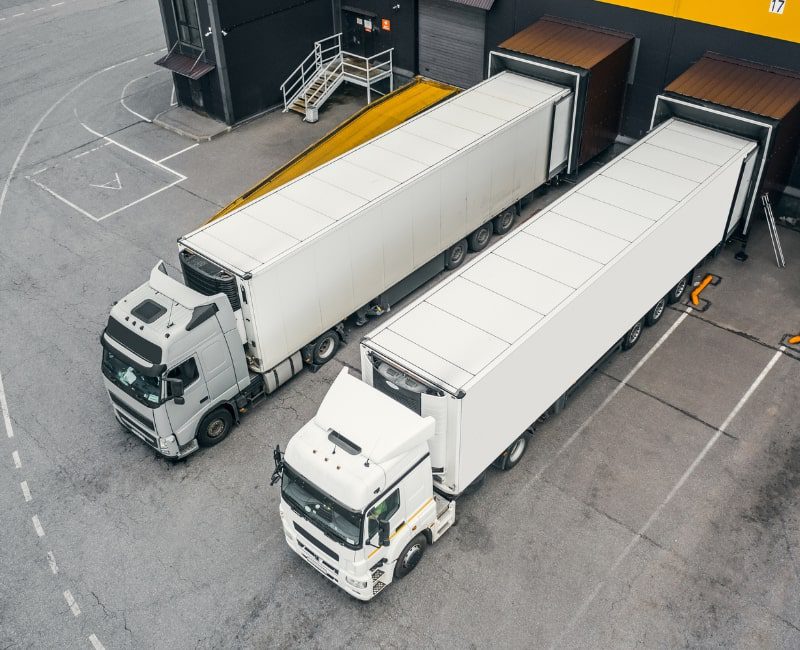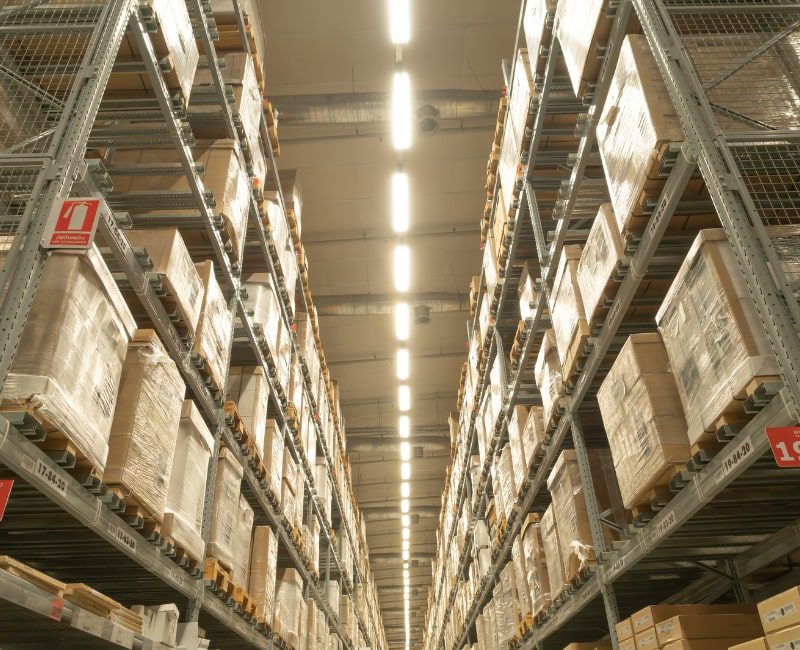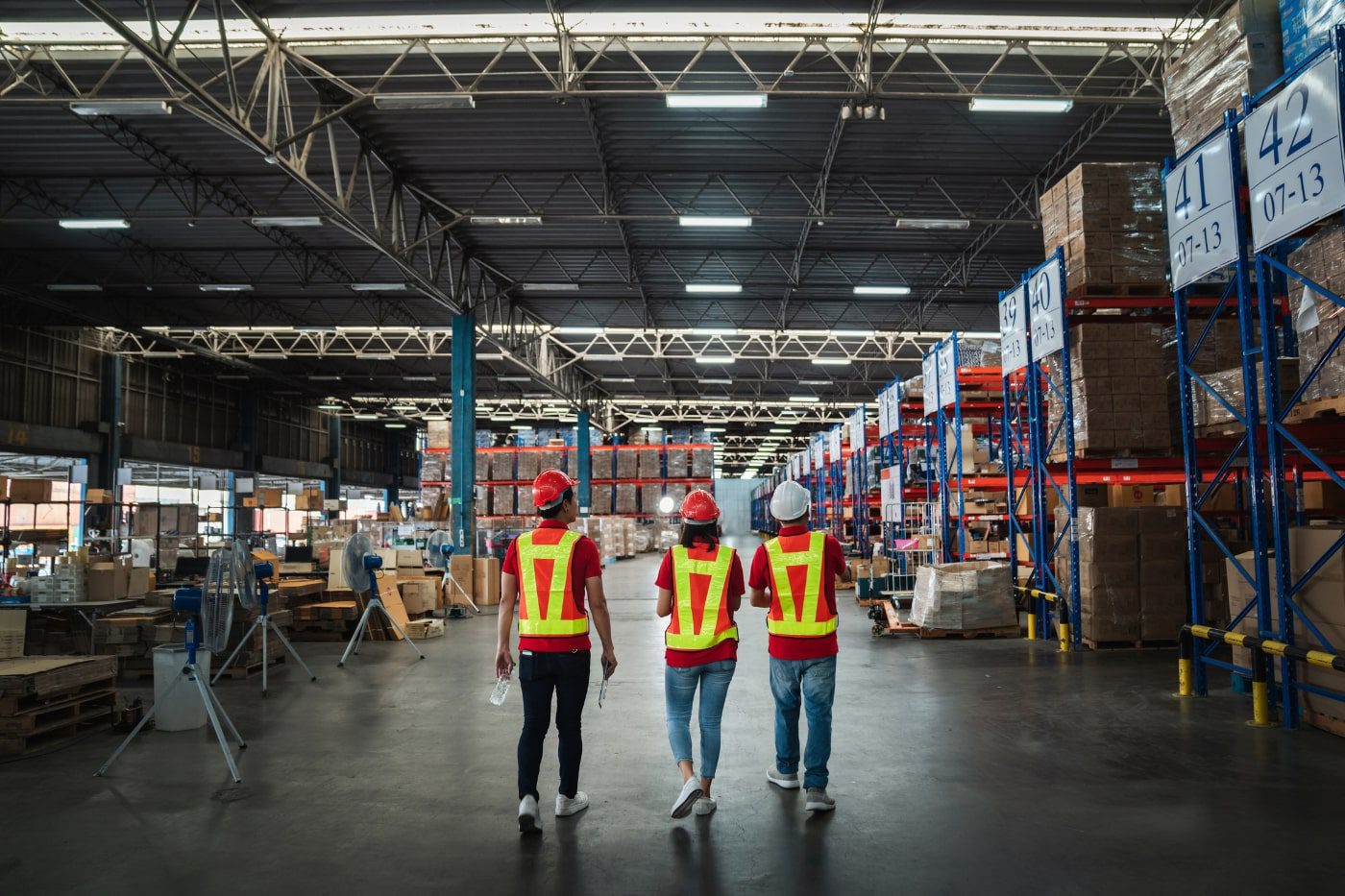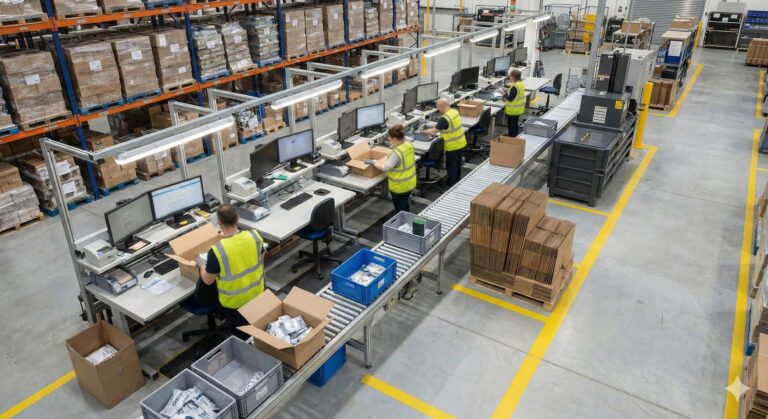Logistics is no longer just about moving boxes. Companies must navigate complex global networks, evolving customer expectations, and other emerging challenges to stay ahead.
The industry is rapidly changing, driven by the surge in eCommerce, the rapid pace of technological change, and a growing focus on sustainable practices.
Let’s explore how supply chain leaders are tackling these modern challenges head-on. We’ll unpack the key hurdles they face—from unpredictable disruptions to the demands of last-mile delivery—and delve into the innovative strategies they’re employing to build resilient and adaptable supply chains.
Key Challenges Facing Modern Logistics
Let’s face it, keeping goods moving smoothly isn’t a simple task. From global disruptions to tech integration, leaders are constantly adapting. Here’s a look at some of the biggest hurdles they’re tackling.

Supply Chain Disruptions and Volatility
Global events, ranging from geopolitical tensions to natural disasters, have profound and immediate impacts on supply chains. The ripple effects of these disruptions can be far-reaching, leading to delays, increased costs, and inventory management complexities.
For instance, a port closure in one region can create a domino effect, causing backlogs and delays across the entire supply chain. Companies are tasked with balancing inventory levels in the face of unpredictable demand, requiring sophisticated forecasting and agile response strategies.
The eCommerce Boom and Last-Mile Delivery
The surge in eCommerce has fundamentally reshaped consumer expectations, with demands for rapid, reliable delivery becoming the norm. This puts immense pressure on logistics operations, particularly in the critical last-mile segment.
The challenges of rapid delivery, including urban congestion and tight delivery windows, are compounded by rising costs and sustainability concerns. Finding cost-effective and environmentally responsible last-mile solutions is a major focus for supply chain leaders.
Technology Integration and Digital Transformation
The integration of advanced technologies, such as automation and artificial intelligence, presents both opportunities and challenges. While these technologies offer the potential for increased efficiency and optimization, they also require significant investment and expertise.
Data security and cybersecurity risks are rising, necessitating robust protection of sensitive information. Moreover, a talent gap exists, making it difficult to find professionals with the necessary skills to manage and implement these technologies.
Sustainability and Environmental Concerns
Growing environmental awareness and regulatory pressures are driving a shift towards sustainable logistics practices. In fact, 75% of consumers consider sustainability important in their purchasing decisions. Companies are actively working to reduce their carbon footprint through initiatives such as the adoption of electric vehicles and optimized routing.
Sustainable packaging and waste reduction are also key considerations, as businesses strive to minimize their environmental impact. Staying compliant with evolving environmental regulations is crucial for maintaining a positive reputation and avoiding penalties.
Labor Shortages and Workforce Management
Labor shortages, particularly in the trucking industry, pose a significant challenge to logistics operations. Addressing the driver shortage and retaining skilled labor are critical priorities. Companies are investing in training programs and creating positive work environments to attract and retain talent.
Innovative Supply Chain Solutions and Strategies
Forward-thinking supply chain leaders are implementing innovative solutions and strategies to navigate new challenges. Here’s a look at some of the key approaches they’re taking.

Enhanced Visibility and Real-Time Tracking
To combat supply chain volatility, enhanced visibility and real-time tracking are essential. Leaders are leveraging the Internet of Things (IoT) and blockchain technology to gain end-to-end transparency. This allows for precise monitoring of goods and materials, enabling proactive responses to potential disruptions.
Predictive analytics are being used to anticipate risks and mitigate their impact, allowing companies to stay ahead of potential issues. Optimizing routes and delivery schedules, often through advanced software, ensures that goods move efficiently, minimizing delays and reducing costs.
Automation and AI-Driven Logistics
Automation and artificial intelligence (AI) are transforming logistics operations. Robotics are being implemented to streamline warehouse operations and improve delivery efficiency. AI-driven demand forecasting helps companies accurately predict future demand, enabling them to optimize inventory levels and reduce waste. Automating warehouse management systems, from inventory control to order fulfillment, enhances productivity and reduces human error.
Diversification and Resilient Supply Chains
Building resilient supply chains requires diversification and strategic planning. Companies are establishing regionalized supply networks to reduce reliance on single sources and minimize the impact of global disruptions. Strategic partnerships with suppliers and logistics providers are essential for creating flexible and responsive supply chains.
Implementing contingency planning, including alternative sourcing and transportation options, ensures that operations can continue in the face of unexpected events. This is especially vital for companies relying on the efficient movement of goods in key logistics hubs like Indianapolis.
Sustainable Logistics Practices
Sustainability is becoming a necessity. Companies are investing in electric and alternative fuel vehicles to reduce their carbon footprint. Implementing green warehousing solutions, such as energy-efficient lighting and climate control systems, helps minimize environmental impact. Embracing circular economy principles, which emphasize reducing waste and reusing materials, promotes sustainability throughout the supply chain.
Workforce Development and Training
Addressing labor shortages and talent gaps requires a focus on workforce development and training. Companies are investing in upskilling and reskilling programs to equip their employees with the necessary skills to manage new technologies. Creating a positive and inclusive work environment fosters employee engagement and retention. Attracting and retaining talent through the use of technology, such as mobile apps and digital training platforms, helps companies build a skilled and motivated workforce.
These strategies are helping supply chain leaders build more agile, efficient, and sustainable logistics operations. The ability to adapt and innovate is essential for success. A 3PL with a strong understanding of these strategies can be a valuable asset for businesses looking for a partner to handle modern logistical challenges.
Staying Ahead with Strategic Logistics
The logistics landscape isn’t slowing down anytime soon; in fact, it’s accelerating. Staying still means falling behind, which is why supply chain leaders are continuously working to stay ahead of the curve. Enhanced visibility, automation, resilient supply chains, and a focus on workforce development are all crucial. Companies should be adapting by leveraging technology and strategic partnerships to build agile and efficient operations.
The ability to pivot quickly, embrace innovation, and build flexible supply chains is what separates successful companies from those that struggle. Businesses looking to streamline operations and enhance their supply chain may benefit from partnering with a provider like Hanzo Logistics – one that stays ahead of the curve and offers logistics solutions that are tailored to a client’s specific needs.



